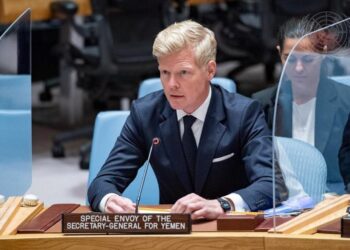During the electoral festival for Lebanon’s Beqaa area, Hezbollah Secretary General Hassan Nasrallah hailed the people by asserting the fact that “voting on the day of elections is a message to all those conspiring against the Resistance and its weapons, and those conspiring against the future of the Lebanese people.”
The announcement of the parliamentary elections’ results coincided with the anniversary of the ill-fated ‘May 17 agreement’, which had been intended to normalize ties with the occupied entity in the late 80s. The vast majority of the Lebanese have voted for the resistance against those who endeavor once again to establish normalization with the Zionist enemy.
Indeed, the presence of the pro-resistance community was remarkable, despite all the threats and intimidation campaigns, recording the highest percentage of votes (365000+ votes), noting that the head of the Resistance bloc recorded the highest result across Lebanon (48000 preferential votes).
Despite the propaganda that Lebanon is occupied by Iran, Washington and Riyadh’s ambassadors blatantly and openly interfered in the electoral process, revealing the size of the electoral payment.
Hence, all schemes have failed to ignite discord between the resistance and its people, proving that despite the brutal US sanctions, they have failed across all Lebanese regions, contrary to what Washington and its allies promoted. Thus, the resistance has the right and the duty to participate in decision-making, especially related to the future of Lebanon and its sovereignty.
All the 13 resistance candidates have won the seats; it is true that some of their allies have lost because of their alliances, and considering that the electoral system is unfair, Today, most Lebanese factions are represented in parliament, even those of the so-called ‘October 17th revolution’. There is no winner of the actual majority. However, if we closely read the results, in spite of all the political and financial support of the Saudi-American team, the resistance is publicly the winner.
For example, in Beirut, the capital, the resistance’s rival Khaled Qabbani got only 3433 preferential votes, while the resistance candidate Amin Shri got 26.363. Hence, the capital’s choice is with the resistance.
Besides, Hezbollah candidates’ preferential votes have exceeded the preferential votes of the Lebanese, who led the electoral battle with ‘anti-resistance and anti-Iranian occupation’ slogans (only 161.970), as well as the preferential votes obtained by the Lebanese Phalange Party (only 24 516).
The resistance team did not get a majority yes, but it has won the highest percentage of votes, noting that because of the unfair law, some deputies have won by at least 1,000 votes.
Based on the current sectarian system, no side has won an outright parliamentary majority, but the number of deputies does not reflect popularity. Electorally, Lebanon is divided such that out of the 128 deputies, half are allocated to the Muslims and half to the Christians, noting that both religions are divided into sects (Shiites, Sunnis, Marounites, Catholics, etc.), which have a predefined maximum number of deputies that they can possibly win. Besides, seats are arbitrarily constructed according to sectarian and party affiliations, which have existed for decades. This means a candidate can become an MP with only 8,000 votes in one electoral seat, whereas in another, they may need to reach 22,000 votes.
The United States returned to political sanctions after announcing the results and the resolution of Lebanese voters’ choice of resistance, which saw the preferential votes for the candidates of the bloc receive a very significant increase from those in the last election in 2018. They also received the votes of more than the combined political parties (not to mention the votes won by the allies of the resistance).
The United States has returned to political sanctions where the imposition of the Office of Foreign Assets Control, the US Treasury arbitrary sanctions on Lebanese businessman Ahmed Galal Rida Abdullah, claiming “it works as a facilitator of Mali for Hezbollah.”
Hence, the new parliament has to shoulder a host of chronic monetary, economic, social, and health problems in the crisis-rotten country so that it cannot tolerate any amateurish behavior and immature political statements. Lebanon is on the verge of collapse and needs an urgent effort to secure a way to salvation. Meanwhile, we pray that the Lebanese parties make pure national calculations away from the diktats of foreign embassies.







